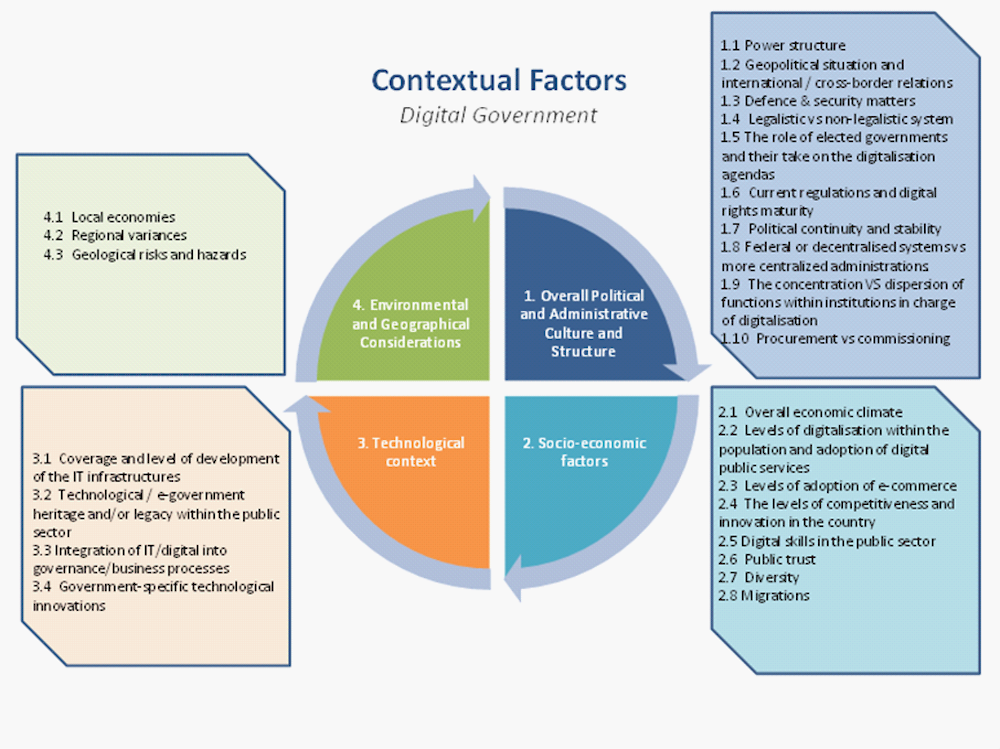Contextual analysis of factual elements is essential for finding appropriate and informed solutions in a variety of social, economic, political and cultural contexts. When establishing a strategy for digital governments, it is of paramount importance to consider the wide range of contextual factors that can affect the ability to mobilise and co-ordinate efforts across policy areas and levels of government. “[C]ontextual factors are all the elements of the environment within which some phenomenon occurs: either the micro-context of the immediate situation or the macro-context of social, cultural, historical, political, environmental, legal and/or economic circumstances and conditions, seen as relevant to the description or analysis of any phenomenon” (OECD, forthcoming[1]). Integrating adaptability with strong understanding of contextual factors will also ensure an efficient integration and organisation of resources through the public sector. It helps authorities better align with the digital transformation strategies and policies, including main enablers, guidelines and practices, as well as the related rules and regulations.
Traditional situational considerations examined by the OECD when conducting research include data on the administrative culture, that includes the institutional and organisational characteristics, of the country. These include the electoral system of the parliament, the configuration of the executive branch, the division of power between one central and local governments, and the essential features of the judicial system. Political and legal criteria help to decode the governance structure of countries, their management and organisational approach. Under the leadership of the E-Leaders Task Force, the OECD decided to include the micro-context of the circumstances surrounding the governance of digital government and the macro-context of the broad social, cultural, geographical, financial, environmental, legal and/or economic circumstances and conditions deemed to be essential to the definition or evaluation of any event (see Figure 2.1). The interlocking circle of digitalisation and economic and social changes calls for the need to incorporate considerations other than the standard policy features that are typically considered when discussing governance in modern societies and adopting emerging governance strategies (OECD, forthcoming[1]).
In the following sections, the contextual factors of the E-Leaders governance framework will be applied and adapted to Lebanon according to four dimensions: 1) overall political and administrative culture and structure; 2) socio-economic factors; 3) technological context; 4) environmental and geographical considerations – with short analyses following sub-dimensions that were selected as relevant to the topic of digital government governance.


